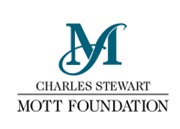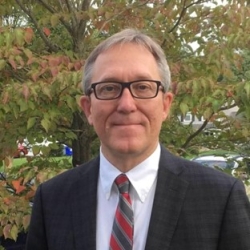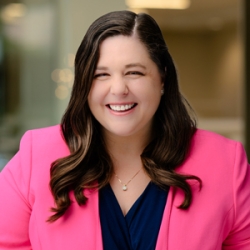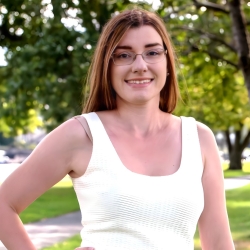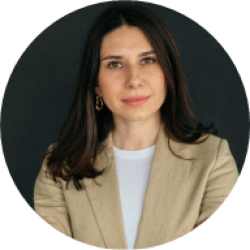Innovative Solutions in Education
How can philanthropy apply lessons from the war in Ukraine and support education systems during and after a crisis and in conflict zones across the globe? Since the war began, over 2,600 schools have been damaged and some 5.3 million children face barriers preventing access to education (Source, UNICEF). This conversation shed light on the current state of education in Ukraine and the potential for strategic partnerships and innovative programs that address educational challenges brought on by Russia’s war.
The conversation hosted the following speakers:
- Anna Novosad, a Former Minister of Education and co-founder of SavEd, will share strategies for rebuilding the destroyed schools,
- Oksana Matiiash, CEO of Teach for Ukraine, will speak on ways to support rural and frontline schools, and
- Katerina Manoff, founder of the US-based ENGin program, will discuss educational engagement between thousands of Americans and Ukrainians for online English conversations.
Event Summary:
As a result of Russia’s targeting of Ukrainian civilian infrastructure, 10% of schools in Ukraine have been severely damaged or destroyed. According to Ministry of Education data, only about one-third of Ukrainian students (i.e., 1.5 million children) are able to attend classes exclusively in person. Roughly 1.3 million Ukrainian school students rely exclusively on distance learning and this includes 500,000 refugee children living abroad. Another 1.2 million children study in a mixed in-person/online format. Due to the coronavirus pandemic and Russia’s full-scale war against Ukraine, an incredible number of students have not attended school in person for a total of four years. The horrific war, with its unceasing air raid sirens and bombings, has severely disrupted access to education in Ukraine for millions of children and is taking a huge toll on Ukraine’s human capital. However, a number of non-governmental organizations have stepped in to try and ameliorate the crisis.
The Kyiv-based NGO savED has launched an emergency education initiative aimed at restoring access to education for children in communities where schools have been wrecked or remain under threat of frequent attack. Temporary schools are set up as soon as areas are liberated from Russian occupation. Bomb shelters are remodeled into pleasant educational spaces. Digital Learning Centers have been created and they are equipped with furniture, computers, projectors and other devices and staffed with tutors offering a structured curriculum and assistance with preparations for university entrance exams. UActive, a collaborative civic education program between savED and Spirit of America, which teaches community service basics, provides Ukrainian students with the opportunity to implement their projects in their local communities. Thus far, savED has been engaged in the restoration of 54 damaged school facilities and helped around 40,000 students obtain renewed access to educational and social activities.
Teach for Ukraine (TFU), an organization inspired by Teach for America, was established in Ukraine in 2017 to help address educational inequality in Ukraine by placing additional teachers (new talent) in under-resourced schools in rural areas. Since the launch of Russia’s invasion, the NGO has expanded its activities to include urban frontline schools. Teach for Ukraine aims to address learning losses among students through tutoring and offers mental health psychosocial support (MHPSS) to help students and educators deal with the stress and trauma of war. Through a project called “Education Soup,” TFU provides small-group tutoring in three subjects – math, Ukrainian language, and history and has engaged some 600 tutors. The MHPSS component of TFU activities called Together for Teachers, features school visits by trained psychologists, professional training on a trauma-sensitive approach to teaching, and access to other mental health resources. Some 90,000 teachers have participated in this programming. Teach for Ukraine’s motto is “First you unlock a student’s potential and then they unlock the potential of the country.”
The US-based ENGin program brings together young Ukrainians and English speakers for free, weekly, hour-long English conversation practice sessions. ENGin provides Ukrainian participants with the opportunity to improve their English proficiency – a crucial skill in the global market – and fulfills the need for connection and support in a time of war, disruption, and displacement. Ukrainians who have signed up for the program say they have experienced a rapid growth in their spoken English fluency. It is a universal skill that is essential for Ukrainians in building their careers in IT, business, government, sciences, and many other fields. The sessions are often a launching pad for tailored academic and professional mentoring and support from English-speaking volunteers, most of whom are American. An equally important aspect of ENGin interactions is cultural exchange. It’s a unique chance for Ukrainians to discover a new country, to share their stories, to get a global perspective, and to see themselves as part of the world community. The final big benefit from participation in ENGin is friendship and emotional support. Ukrainian youth gain a friend on the other side of the planet, who is there for them every week, ready to listen, empathize and care. And it brings great satisfaction to the volunteers as well, some of whom have traveled to Ukraine despite the war. Thus far nearly 20,000 Ukrainian youth, ages 9-35, have been paired with some 17,000 English-speaking volunteers, ages 14-85. ENGin conducts a screening and partnering process with its small staff in Ukraine, in order to ensure a rewarding and safe experience for all.
In partnership with:

